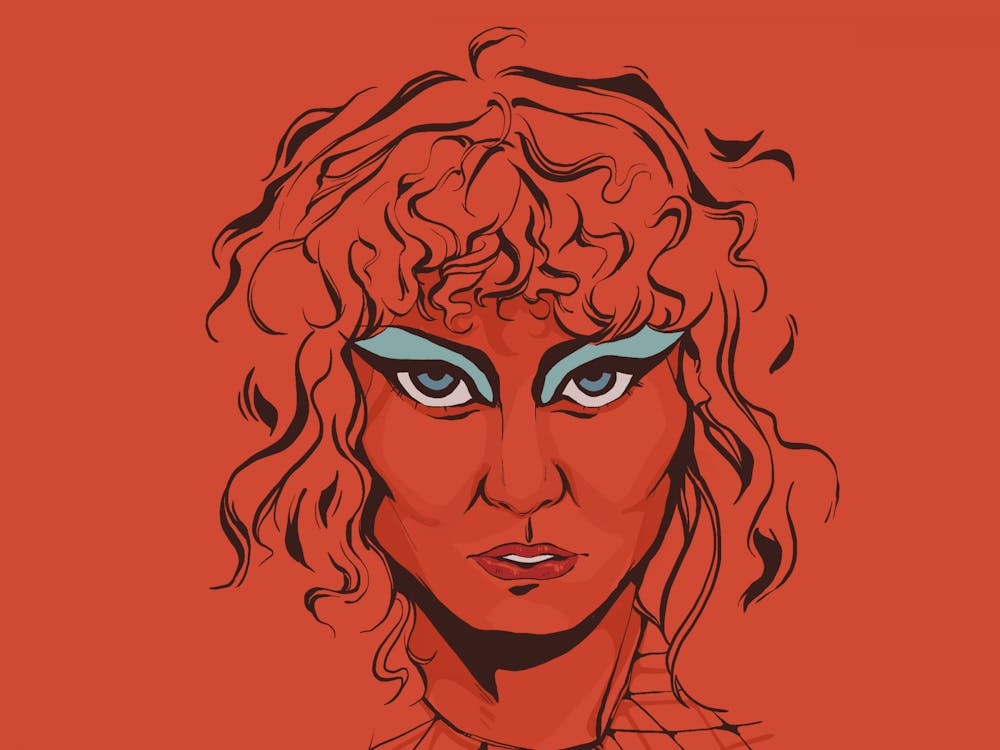Róisín Murphy occupies a peculiar space that's distinctly her own in the pop culture lexicon. With a unique flair for absurdist fashion and alternative pop, Murphy made a name for herself as an auteur of 21st Century disco ever since the release of her 2007 hit "Overpowered." After the middling success of 2016's Take Her up to Monto, she returns with the instant classic Róisín Machine. To both her benefit and her detriment, disco is en vogue again. Doja Cat's viral hit "Say So" bleeds of 70's nostalgia. Dua Lipa, similarly, updated the classic sound for the mainstream pop consumer with Future Nostalgia and its remix album. Even Jessie Ware made a splash with What's Your Pleasure? Given the prominence of her fellow disco adjacent peers, comparisons are inevitable. Speaking to NME, Murphy boasted "I'm back to snatch Dua Lipa's and Jessie Ware's wigs!" And she's right. She should say it.
Róisín Machine, rife with lyrical and instrumental motifs, is a masterclass in modern disco, complete with instantly recognizable cover art. Each of its ten tracks blends seamlessly into one another, giving the record the feel of a good DJ set. Clearly, the album was meant for the dance floor, but even with the extenuating circumstances of COVID, it still creates a distinct and intuitive atmosphere. It places self–revelation and reflection all on the same dance floor, even if it is just an imaginary one.
The eight–minute, slow–burning epic, "Simulation," makes full use of its runtime as an opener, setting the tone for the rest of the album. In its first minute, Murphy says "I feel my story is still untold," a phrase which reappears later in the record. For the 47–year–old artist, it's ironic, since she has four other albums to her name. But the phrase illuminates who Murphy is an artist, someone who has consistently been underrated and looked over throughout her career. She's pop but not pop enough for mainstream success, and indie, but not indie enough to be avant–garde. "Simulation" has a certain sound, too, that is repeated in "Inescapable." It's addictive and repetitive, not necessarily like a good Charli XCX hook, but like something you would hear in a pulsating pre–COVID club, moving the late night into the morning. "Simulation," like much of the record to come, fittingly lulls the listener into a swaying trance of bass and introspection.
Another highlight is the single "Something More." Particularly affecting are the lyrics "Maybe this could be the last time I feel the sting / of what's it like to want everyone and everything." It's one of the more memorable moments on the album, a point of clarity glimmering through the heavy velvet mist. Later, "We Got Together" bursts onto the scene, a pure slice of disco–funk. Then the tongue–in–cheek titled "Murphy's Law" sees Murphy lay the law of the dance floor. Evoking both Earth, Wind, and Fire's "September" and the Bee Gees in equal measure, it grooves along, carefree and in love. One could easily imagine couples dancing to this song in a packed venue in an alternate timeline.
Róisín Machine is a strange little record, given the current circumstances, but it also offers itself as a salve for the apocalyptic, hectic time that we live in. It's a testament to the power of music to act as a kind of therapy. Find escape in synths that urge you to move and lyrics that numb the wounds of the world—even if it's just for an hour.

